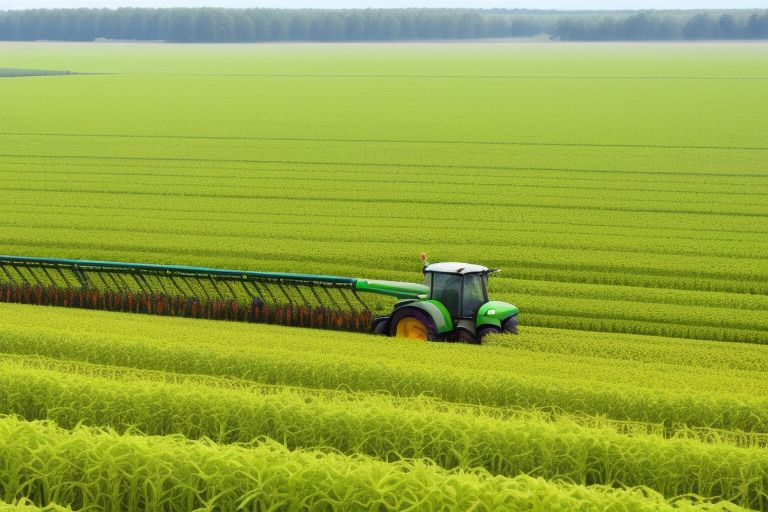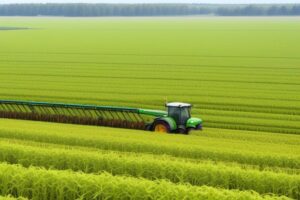Artificial intelligence (AI) is revolutionizing the agricultural industry by incorporating predictive analytics to enhance crop yields, optimize farming practices, and reduce operational risks. As the global population continues to grow, and climate change presents new challenges to traditional farming methods, the role of AI in agriculture becomes increasingly crucial. This article explores how AI-driven predictive analytics is transforming farming, making it more efficient and sustainable.
The Role of AI in Modern Agriculture
AI in agriculture involves using advanced algorithms and data analytics to predict various environmental and crop growth factors, thereby aiding decision-making. From soil analysis to weather forecasting and pest control, AI tools are helping farmers make informed decisions that lead to better crop management and increased productivity.
Key Applications of AI-Powered Predictive Analytics in Agriculture
1. Precision Farming
Precision farming is one of the most significant applications of AI in agriculture. It involves using AI to analyze data from various sources like satellite images, sensors in the field, and weather stations to monitor crop health, soil quality, and climate conditions. This information allows farmers to optimize the amounts of water, fertilizers, and pesticides used, reducing costs and environmental impact while maximizing crop yields.
2. Pest and Disease Prediction
AI models can predict pest attacks and disease outbreaks before they happen. By processing data from past infestations and current environmental conditions, AI systems can alert farmers about potential threats, enabling them to take preemptive actions. This not only saves crops but also reduces the excessive use of chemical pesticides, leading to more sustainable farming practices.
3. Yield Prediction
Predictive analytics can forecast crop yields with high accuracy by analyzing factors such as plant characteristics, weather patterns, and farming practices. This capability helps farmers plan better for storage, distribution, and marketing, ensuring they get the best returns on their produce. It also aids in managing supply chains more effectively, reducing food waste.
4. Water Management
Water scarcity is a major challenge in many parts of the world. AI helps tackle this issue by using predictive analytics to manage irrigation systems more efficiently. Sensors collect data on soil moisture and combine it with weather forecasts to automate irrigation, ensuring that crops receive the precise amount of water needed at the right time.
Benefits of AI in Agriculture
- Increased Efficiency: AI enables more precise farming techniques, reducing waste and increasing the efficiency of resources like water and fertilizers.
- Enhanced Crop Quality and Yields: By providing detailed insights into crop health and environmental conditions, AI helps farmers improve the quality and quantity of their produce.
- Risk Reduction: Predictive analytics can forecast adverse weather conditions, pestilence, and other potential threats, allowing for mitigative actions that reduce risk.
- Sustainability: AI-driven practices support sustainability by minimizing the environmental footprint of farming through optimized resource usage and reduced chemical inputs.
Challenges and Future Prospects
While AI holds transformative potential for agriculture, there are challenges:
- High Initial Investment: Implementing AI solutions requires significant initial investment in technology and training, which can be a barrier for small-scale farmers.
- Data Privacy and Security: Collecting and storing large amounts of agricultural data raises concerns about privacy and data security.
- Technical Knowledge: Farmers need adequate training to integrate AI technologies into their traditional farming practices effectively.
Conclusion
AI-driven predictive analytics is setting a new standard in agriculture, enabling smarter, more efficient, and sustainable farming practices. As technology advances and becomes more accessible, its integration into agriculture is expected to deepen, offering profound benefits for farmers worldwide. The future of agriculture lies in embracing these innovations, which not only boost crop yields but also contribute to a more sustainable and food-secure world.























+ There are no comments
Add yours